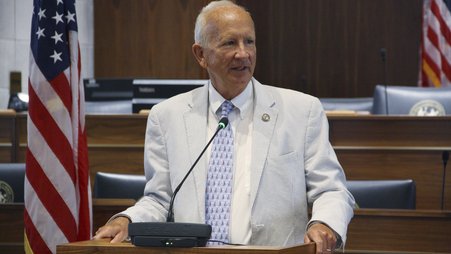The Supreme Court reinforced key protections for the news media in yesterday’s decision on social media content moderation and the First Amendment. It made clear that, just as the government can’t force a newspaper to print something its editors don’t want to print, the government can’t force online platforms to carry content they don’t want to carry.
The decision is a win that will help protect free speech, including by the press, from government censorship disguised as an attempt to combat bias. But one justice’s concurrence raises some troubling questions about the First Amendment’s application to the TikTok ban case.
Content moderation at the court
The NetChoice cases involved a challenge to the constitutionality of Texas and Florida laws regulating how social media companies handle users’ online speech. Arguing that liberal platforms were “censoring” conservative voices, Republican legislatures in both states passed laws that limited platform content moderation.
Two federal appellate courts reached opposite results. In a widely derided opinion, the 5th U.S. Circuit Court of Appeals held that the Texas social media law was likely constitutional because content moderation is censorship, not speech. In contrast, the 11th U.S. Circuit Court of Appeals concluded that the Florida law likely violated the constitution.
The Supreme Court said that neither court of appeals got it quite right because they didn’t apply the correct legal test, and it sent both cases back to them to do so. But a majority of justices also concluded that content moderation, at least as it’s done by the big platforms on their main news feeds, is protected by the First Amendment.
That means the decision isn’t a victory for these state laws, as the Florida attorney general has claimed. Instead, it’s a win for free speech — and may become an important precedent for the press as well.
Key press precedent stands
Importantly for the press, the court’s majority opinion relied heavily on a crucial press freedom precedent to explain how the First Amendment applies to content moderation.
In Miami Herald v. Tornillo, the court recognized that the First Amendment protects the right to engage in editorial decision-making. In that case, the court struck down a Florida law that gave candidates for office a right to publish an answer to newspapers’ criticism, because the First Amendment gives newspapers — not the government — the right to decide what to print and how to cover newsworthy issues.
Tornillo was decided in the 1970s, and some wondered whether a conservative Supreme Court would look disfavorably on an older case protecting the press.
However, in NetChoice, the majority opinion relied heavily on Tornillo to explain how the First Amendment’s protection for editorial discretion prohibits government censorship in the name of “balance.”
The court’s reaffirmation of Tornillo is especially important as the news media faces increased risk of hostile legislatures and executive officials who want to limit their First Amendment rights.
Former President Donald Trump and his associates have made no secret of the fact that he believes that the news media is biased against him. Trump has also repeatedly called on news outlets to be regulated based on their negative coverage of him or failure to carry his remarks.
If Trump is reelected, Tornillo may be an important bulwark against his future attempts to interfere with the press and its decisions of what to publish or not publish about him.
Facial First Amendment claims carry on
The court sent the NetChoice cases back to the lower courts because it said they hadn’t applied the right test for “facial” First Amendment challenge to Texas and Florida laws, that is, unconstitutional in all circumstances, as opposed to its application in a particular case.
The court hinted at oral argument that it might rule this way, and some of the justices’ questions even raised concerns that it might make it harder to prove a First Amendment facial challenge.
That didn’t happen. As a result, journalists and news media outlets who want to bring facial challenges to future law impacting their First Amendment rights still can.
One justice clocks TikTok
The NetChoice decision isn’t all good news for the First Amendment, however. Justice Amy Coney Barrett’s concurrence includes a disturbing hint about how she — and potentially other justices — might view a First Amendment challenge to a TikTok ban, as well as the First Amendment rights of foreign news outlets.
Although foreign ownership of platforms has nothing to do with the NetChoice case, Barrett wrote in her concurrence that “the corporate structure and ownership of some platforms may be relevant to the constitutional analysis” because “foreign persons and corporations located abroad” do not have First Amendment rights. She posed “hypothetical” questions about content moderation policy and decisions influenced from abroad that seemed to clearly have the claims that the Chinese government pulls the strings at TikTok in mind.
We’ve written many times about how a TikTok ban undermines the First Amendment. But, even more worryingly, Barrett’s concurrence has troubling implications for journalists and news outlets operating abroad, who, she says, have no First Amendment rights.
It seems that some executive branch officials agree. For example, before it reached a plea deal with Julian Assange, the U.S. recently failed to give U.K. courts adequate assurance that Assange, a foreign national, could rely on the First Amendment to defend himself.
But regardless of whether foreign social media platforms, news outlets, or journalists themselves have First Amendment rights, Americans have a First Amendment right to receive information from foreigners, and Americans have a right to communicate through whichever platform they prefer, no matter who owns it.
As the Electronic Frontier Foundation explained in a legal brief joined by Freedom of the Press Foundation (FPF) in a case challenging the federal TikTok ban, “The use of TikTok by its millions of American users to share and receive ideas, information, opinions, and entertainment from other users around the world lies squarely within the protections of the First Amendment.”
Barrett’s concurrence doesn’t mention any of that. Even as the court reiterates core First Amendment principles in NetChoice, it may need a reminder of others when it comes to TikTok.





